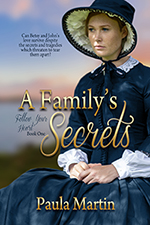Romance, Mystery, Suspense, or True Crime—every reader and every writer has a favorite genre they automatically reach for in a book store or download as an ebook.
While writers and publishers must label the genre of their books so booksellers know where to place them, it is becoming increasingly more difficult to define 'genre.'
Cross-genre Fiction: Romance/Mystery, YA books read by adults (labeled New Adult), and Historical SciFi (time travel) are now commonplace.
The genres are mingling.
Yet, the label Woman's Fiction is still alive and well. What exactly is Woman's Fiction?
When men write novels with male characters, do we slap the label Men's Fiction on the bookshelf? No, we call it Fiction.
But I regress...
Urban Fantasy, New Age (famous again), and Romanstasy.
Besides knowing the genre required extensive world-building, I needed to familiarize myself with this subgenre.
Romantic fantasy (hence, Romanatasy) is a subgenre of fantasy fiction that combines fantasy and romance. It describes a fantasy story using many of the elements and conventions of the chivalric romance genre. One of the key features of romantic fantasy is the focus on social, political, and romantic relationships.
As a reader, I devour nonfiction and routinely watch PBS historical documentaries. The Chronicles of Narnia (The Lion, the Witch, and the Wardrobe, etc.) were my favorite childhood novels, shoving my Nancy Drew Mysteries into second place. However, the idea of creating a new world complete with maps, rules, foods, animals, and evil bad guys would give me significant anxiety and nightmares.
I write YA historical fiction, RomCom, Romance, and Romantic Suspense. I also love my (non-lethal) Zombies, Vampires, Werewolves, etc.
World-building?
Knowing me, I'd become fixated on developing a cookbook.
Do you have a favorite genre?
Or is there a genre mashup you love to read? Tell me all about it :)
Don't be shy; add a comment or two or even three. After all, I'm probably only one of half a dozen people who liked the movie "Cowboys and Aliens" starring Daniel Craig and Harrison Ford.
Where's Connie?
To find/ follow me, purchase my books, or just see photos of my pups, the links are listed below :)
Happy Reading,
Connie
Sidebar: The January 2024 article I wrote on the BWL Insider Author Blog, "Everyone Wants to Write a Book," appears on a "for writers" Pinterest site. (full credit is given to me and the bwlauthors.blogspot.com website, along with a link).
Smashwords (SALE): https:/smashwords.com/profile/view/vinesbwl store
BLOG with links: Dishin It Out
Website: https//www.connievines-author.com
Follow Connie Vines, Author, on Instagram, Facebook, and Twitter
Barnes and Noble, Amazon, Apple, Pinterest, etc.







.jpg)











